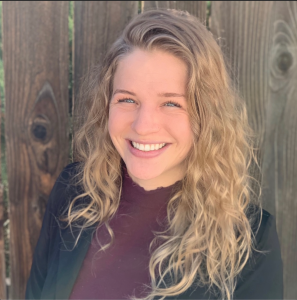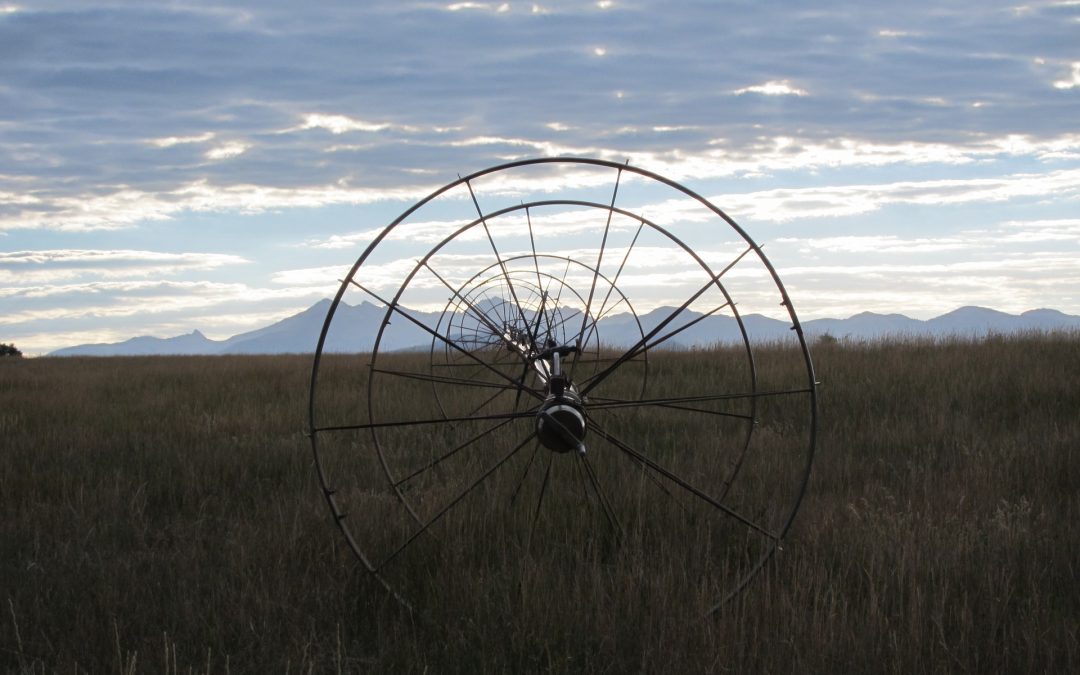This is the fourth blog post in a series on diversity, equity and inclusion in Colorado agricultural water planning. Read the first post, second post, and third post.
The drafting of the 2022 Colorado Water Plan update presents the Colorado Water Conservation Board (CWCB) and the entire state of Colorado with an exciting and important opportunity to be more equitable and inclusive in planning for the future of the state’s most vital natural resource. The challenges that face Colorado’s agricultural communities are very real and most likely compounding. Urbanization, drought, and climate change will only increase in the coming years. Envisioning a truly resilient future for the state and its water means including voices from a broad variety of stakeholders and communities, particularly those who have been historically disadvantaged or excluded or whose voices have not been a part of the planning process in the past.
In 2021, the CWCB has made significant progress toward diversity, equity, and inclusion (DEI) in the water planning process with the formation of the Water Equity Task Force and a commitment to active outreach to traditionally underrepresented populations, but there is more to be done. Anti-racism work and dismantling structures of oppression takes considerable, long-term effort. Colorado should strive toward a system with equitable water infrastructure and governance with a vibrant agricultural community, symbiosis between urban and rural water use, healthy ecosystems, and water justice for historically underserved communities. Water justice in this vision includes the shifting of power toward structures that explicitly elevate Black, Indigenous, and People of Color (BIPOC) and their water interests from their historically underserved positions. Planning for justice and inclusion will create resiliency for Colorado.
In October 2020, a team (comprised of the authors of this post and staff from the CWCB) conducted a listening session for urban agricultural producers to help understand the water challenges they face and learn from their visions of what Colorado’s water future could look like. Based on that session and further research on water equity challenges in Colorado’s agricultural sector, our team produced recommendations on how to craft a more equitable and inclusive Water Plan update and presented them to CWCB in November 2020. CWCB has made significant strides in incorporating some of these measures into the update process, but we believe further progress can be made in this realm. Below you will find a shortened list of our recommendations.
If you are reading this and feel inspired to take further action utilizing these or other best practices for equity and inclusion, we encourage you to engage with the CWCB’s feedback process this survey from CWCB: How can the Colorado Water Plan better engage and incorporate diverse voices into water planning?
Further, if you are interested in learning more about water and equity in Colorado water, please register and attend education sessions put on by the Water and Equity Partnership from the National Young Farmers Coalition and FrontLine Farming.
Recommendations:
Permanently install a Water Equity Task Force
The Water Equity Task Force was created to better understand existing equity, diversity and inclusivity challenges related to Colorado water issues. Input from this group is intended to help the CWCB incorporate these values into the Water Plan update. This Task Force, however, is only set to meet a handful of times during the Colorado Water Plan update process. In order to truly commit to DEI values and create a more equitable Colorado water system, there must be consistent, diverse stakeholder input at the state level. CWCB should permanently install a Water Equity Committee that informs the Board and the Basin Roundtables. This Committee should include representatives from all water sectors and traditionally underserved communities, including tribes, acequias, urban agriculture producers, and others.
Implement language justice in Colorado water planning
Language justice means that everyone has the right to communicate in the language in which we feel most comfortable. According to Pew Research Center, there were about 1.1 million Hispanic people in Colorado in 2016, representing 21% of the State’s population. Many of these folks and others may prefer to communicate in Spanish. In order to create more equity, inclusion, and justice, the Colorado Water Conservation Board and other entities should provide language interpretation at public meetings, and provide Spanish language versions of the Colorado Water Plan Update, Basin Implementation Plan Updates, and other documents.
Include a more holistic acknowledgment of Native history and rights
The 2015 Water Plan acknowledges the Colorado Ute Tribes as important partners in statewide and interstate water management due to their unique federally reserved water rights. However, the Plan’s treatment of tribal water rights is mostly technical, covering fairly arcane legal topics like the Winters Doctrine and the McCarran Amendment. While these policies are important in understanding tribal water rights, they do little to acknowledge the profound connections that Colorado’s Native peoples have had and still have with water. The importance of water to Colorado’s people did not begin with white settlement and the establishment of the prior appropriation system; indeed, the systems and doctrines upon which the Water Plan is based did much to dispossess Native peoples of their access to water.
If the 2022 CWP update is to be a more meaningful document to a wider range of Coloradans, it should include more complete acknowledgments of Native peoples’ historical presence on the land and use of water, as well as the status and importance of the Colorado Ute Tribes in local, statewide, and interstate water management. Considerable tribal and state resources already exist to help CWCB paint a fuller picture of Colorado’s Native peoples and their relationships to and rights regarding water. This acknowledgment does not need to come at the expense of highlighting important and positive progress in tribal water issues. However, a frank treatment of historical injustices and present realities for the Ute tribes is an important step in crafting a truly equitable and inclusive Water Plan update.
Prioritize DEI in CWP grant funding decisions
Because DEI is being openly prioritized in the 2022 update, it should also be incorporated into CWP grant funding decisions. Projects and proposals that are centered on addressing deficits in DEI, feature DEI considerations, or actively address the needs of underserved communities could foster better inclusion and further elevate the voices of typically underrepresented communities. For example, the CWCB and other funding mechanisms could invest in training programs for young and more representative water leaders. The CWCB could model such initiatives after existing models in Colorado, such as the National Young Farmers Coalition Colorado water fellowship and the Water Education Colorado water leaders program, and/or provide scholarship funding and other supports to help underserved communities better participate in such programs. Investment in such programs could help build more diverse and representative boards at all levels, including conservancy districts, utilities, basin roundtables, the Colorado Water Conservation Board, Colorado Water Congress, and other local water boards.
 Willow Cozzens currently serves as the Water and Equity Project Coordinator for the National Young Farmers Coalition and Frontline Farming and as the Equity and Food Policy Analyst for Jefferson County Department of Public Health. She holds a Master’s degree in Sustainable Food Systems from the University of Colorado – Boulder, where her coursework and practical application projects were focused in environmental policy, food and agriculture law, natural resources science, and responsive activism. Willow is particularly passionate about the cultural and economic impacts of natural resources management and food justice.
Willow Cozzens currently serves as the Water and Equity Project Coordinator for the National Young Farmers Coalition and Frontline Farming and as the Equity and Food Policy Analyst for Jefferson County Department of Public Health. She holds a Master’s degree in Sustainable Food Systems from the University of Colorado – Boulder, where her coursework and practical application projects were focused in environmental policy, food and agriculture law, natural resources science, and responsive activism. Willow is particularly passionate about the cultural and economic impacts of natural resources management and food justice.
 Samantha Grant just achieved her Master’s degree in Sustainability Planning and Management from the University of Colorado – Boulder. Her graduate work primarily focused on environmental policy, water resource management, and climate justice. Her career interests are largely centered around community-based climate action planning as a means to create inclusive and impactful change for all.
Samantha Grant just achieved her Master’s degree in Sustainability Planning and Management from the University of Colorado – Boulder. Her graduate work primarily focused on environmental policy, water resource management, and climate justice. Her career interests are largely centered around community-based climate action planning as a means to create inclusive and impactful change for all.
 Amelia Nill is originally from Kansas City, Missouri and is a recent graduate of the Master’s of the Environment program at the University of Colorado – Boulder. There, she specialized in Sustainability Planning and Management as well as Water Engineering and Management. She is currently volunteering for the American Water Works Association on their Sustainability Committee. She is interested in pursuing a career in natural resource (specifically water) planning, sustainability and environmental justice.
Amelia Nill is originally from Kansas City, Missouri and is a recent graduate of the Master’s of the Environment program at the University of Colorado – Boulder. There, she specialized in Sustainability Planning and Management as well as Water Engineering and Management. She is currently volunteering for the American Water Works Association on their Sustainability Committee. She is interested in pursuing a career in natural resource (specifically water) planning, sustainability and environmental justice.
 Andrew Primo recently graduated from the University of Colorado – Boulder with his Master’s in Environmental and Natural Resource Policy. His graduate work focused on Western water planning and policy, public lands decision-making, and science-policy communication. His career interests are focused on environmental and science education and outreach, bridging the science-policy gap, and environmental storytelling.
Andrew Primo recently graduated from the University of Colorado – Boulder with his Master’s in Environmental and Natural Resource Policy. His graduate work focused on Western water planning and policy, public lands decision-making, and science-policy communication. His career interests are focused on environmental and science education and outreach, bridging the science-policy gap, and environmental storytelling.


 Print
Print